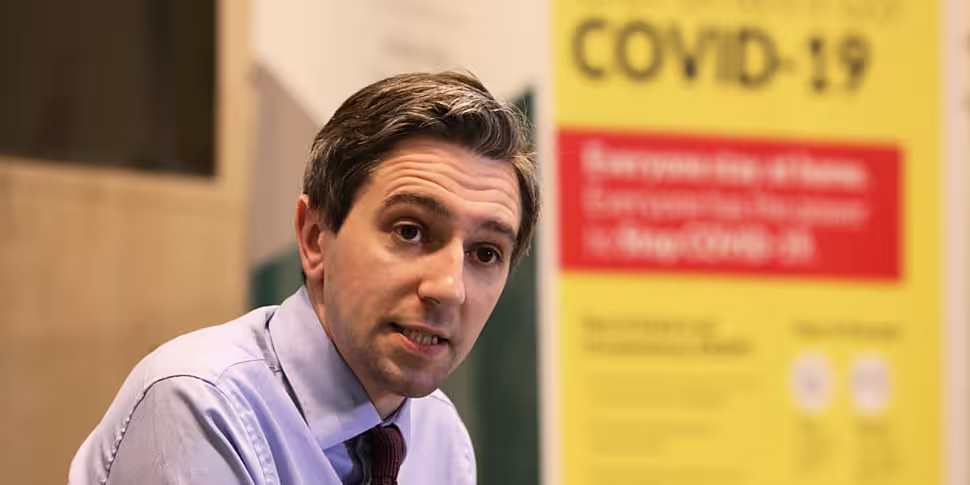Inclusion Ireland, which represents people with intellectual disabilities and their families, has requested an urgent meeting with Health Minister Simon Harris.
The group says it wants to discuss issues of those still remaining in institutional settings during the coronavirus pandemic.
According to HIQA figures, there are currently 2,900 people resident in institutional settings in Ireland.
Inclusion Ireland CEO Enda Egan says: "It is of critical importance that the data of COVID-19 in disability services is made available on a daily basis so we know the extent of the issue.
"The lack of reporting is concerning at present
"We do not know how many people have the virus, how many have died from the virus, or how many have been transferred to hospital as a result of the virus."
He also says that visiting restrictions are adding to the anxiety of affected families.
While the charity Alone, which supports older people, has called for urgent action to support the nursing home and home support sectors.
The virus has affected approximately 40% of all nursing homes in Ireland.
Alone claims years of under-funding and under-investment in home care and nursing homes has impacted both sectors’ ability to cope with the crisis, and that support for older people must be prioritised both now and after the crisis has passed.
The charity is also concerned that the reduction in service provision and capacity for home care will impact older people who are newly in need of home care, such as those being discharged from hospital.
The health watchdog HIQA will publish new guidelines for nursing homes to deal with the pandemic later.
On Twitter, Minister Simon Harris said he will meet Nursing Homes Ireland and HIQA on Tuesday.
Monday evening - #Covid19 update - stay the course, #Stayhome, save lives. This is a public health emergency & our response will remain public health led #coronavirus https://t.co/Q25YwR5C0i
— Simon Harris TD (@SimonHarrisTD) April 20, 2020
Chief Medical Officer Dr Tony Holohan said on Monday: "Nursing homes and long-term residential facilities are a testing priority.
"In facilities with an existing cluster, all residents and staff are to be tested. In the event of a facility reporting its first case, testing of all staff and residents will take place.
"This sector remains a priority for NPHET, along with other vulnerable persons, and we will continue to implement supports and guidance on infection prevention control where required."
Dr Kathleen Mac Lellan, chair of the NPHET Vulnerable People Subgroup, said: "There are 18 COVID-19 response teams across the country, each one led by senior nursing support, assisting nursing homes and long-term residential facilities.
"These teams have senior clinical expertise, infection prevention and control and public health input in preventing and managing clusters."
And Dr Siobhan Kennelly, HSE Group Lead for Older Persons, added: "There has been an ongoing process of engagement and support with the nursing home sector since the start of February.
"We know from international and domestic experience that this disease disproportionately targets vulnerable groups such as older people and those with underlying health conditions.
"But we also know that the Irish experience in relation to deaths in nursing homes is not an outlier in relation to the European experience.
"We continue in our efforts to support our population through this pandemic."
The calls come as 77 more people diagnosed with COVID-19 in Ireland died.
Some 67 deaths were in the east, four in the west, four in the north-west and two in the south of the country.
The people included 32 men and 44 women with a median age of 84.
There have now been 687 COVID-19 related deaths here and 15,652 confirmed cases.
Data from the HPSC, as of midnight on Saturday shows:
- 56% of cases are women and 44% are men, with 478 clusters involving 3,139 cases
- The median age of confirmed cases is 48 years
- 2,272 cases (15%) have been hospitalised
- Of those hospitalised, 306 cases have been admitted to ICU
- 4,009 cases are associated with healthcare workers
Dublin has the highest number of cases at 7,666 (51% of all cases) - followed by Cork with 1,047 cases (7%).
While research conducted on behalf of the Department of Health shows that people are missing contact with family and friends (54%) but that nine out of 10 believe current measures are appropriate.
The nationally representative online survey of 1,270 adults conducted on Monday also found that people are adhering to public health messaging.
The vast majority are reporting actively implementing measures to stay at home (90%), practice social distancing in a queue (90%), hand washing (94%) and coughing into elbow (77%).
And for the first time people are starting to feel that the worst of the pandemic is happening now (52%) - with only 26% believing that the worst is still to come.









